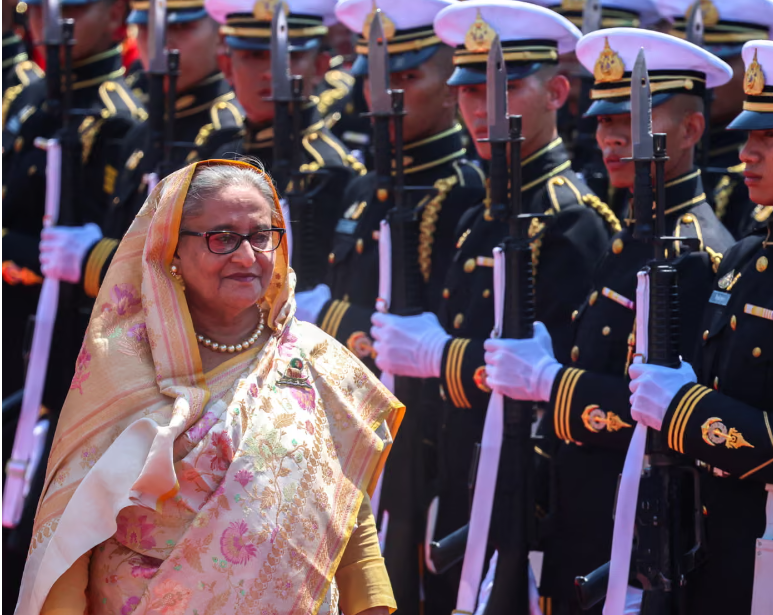Crimes Against Humanity”: Ousted Bangladesh PM Hasina Sentenced to Death.
A Dhaka tribunal convicts Sheikh Hasina in absentia, citing her role in a brutal crackdown on protesters during last year’s uprising.

The International Crimes Tribunal-1 (ICT-1) in Dhaka has sentenced former Bangladesh Prime Minister Sheikh Hasina to death, accusing her of crimes against humanity connected to the 2024 student-led uprising.
The verdict, delivered in Hasina’s absence, marks one of the most dramatic political moments in Bangladesh’s recent history.
🔹 The Case Behind the Verdict
The tribunal found Hasina guilty of failing to prevent violence by state forces during the July–August 2024 protests.
According to the judgment, security agencies under her leadership used drones, helicopters, tear gas, firearms, and heavy force against unarmed protesters.
The charges include:
- Incitement to violence
- Conspiracy
- Command responsibility
- Complicity in mass killings
- Torture and enforced disappearances
🔹 Death Toll and Evidence Presented
A UN-backed investigation reported up to 1,400 civilian deaths during the crackdown.
The tribunal relied on:
- Witness statements
- Audio recordings
- Testimonies from survivors
- Forensic analysis of communication logs
These pieces of evidence were used to establish Hasina’s responsibility in directing or enabling the violence.
🔹 Hasina’s Response From Exile
Since her removal from power in August 2024, Hasina has been living in exile in India.
She has rejected all allegations and called the trial politically motivated.
Her party, the Awami League, condemned the judgment and announced nationwide protests, calling the verdict “a judicial weapon against democracy.”
🔹 Rising Political Tensions in Bangladesh
The verdict has intensified unrest across the country.
Security forces have been deployed throughout Dhaka, and multiple protest outbreaks were reported shortly after the announcement.
The ruling raises concerns over:
- Political stability
- Future elections
- Human rights and judicial independence
- Bangladesh’s relationship with neighboring countries
🔹 What the Verdict Means for the Nation
The sentencing of a former prime minister on such severe charges is unprecedented.
Analysts believe this case will shape:
- Bangladesh’s political future
- Public trust in state institutions
- International diplomatic relations
The decision also sets a historic precedent for accountability in South Asian politics.
